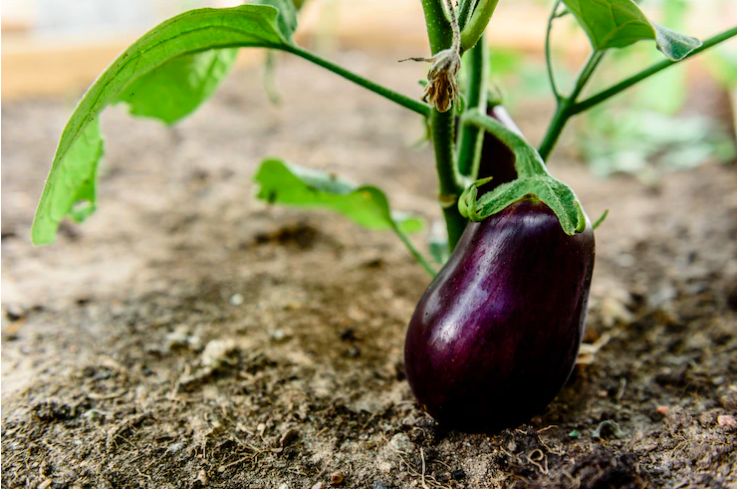Eggplant, also known as aubergine or brinjal, is a versatile and delicious vegetable that can be enjoyed in various dishes, from curries to roasted vegetables. If you’re considering growing eggplant in South Africa, whether in a home garden or on a larger scale, here are ten important things you should know:
- Climate and Region: Eggplants thrive in warm climates with plenty of sunlight. They require a long growing season of approximately 70 to 90 days and prefer temperatures between 21°C and 29°C for optimal growth. South Africa has regions with suitable climates for eggplant cultivation, including Limpopo, Mpumalanga, and parts of KwaZulu-Natal. Choose a region with the right climate and temperature ranges for optimal eggplant growth.
- Variety Selection: There are various eggplant varieties available, each with its unique characteristics in terms of size, shape, and color. Popular eggplant varieties grown in South Africa include Black Beauty, Italian Eggplant, and Japanese Eggplant. Consider factors such as taste preference, space availability, and market demand when selecting eggplant varieties.
- Soil Requirements: Eggplants prefer well-drained soil with good fertility. Conduct a soil test to assess the pH level and nutrient content of your soil. Eggplants generally prefer a slightly acidic to neutral pH range of 5.5 to 7.0. Amend the soil with organic matter and appropriate fertilizers based on the soil test results to ensure optimal nutrient availability.
- Land Preparation: Clear the land of weeds, rocks, and debris before planting eggplants. Prepare the soil by tilling and incorporating organic matter to improve its structure and drainage. Ensure proper soil preparation to create a loose, friable bed for eggplant roots to establish.
- Planting and Spacing: Eggplants can be grown from seeds or transplants. If starting from seeds, sow them indoors 6-8 weeks before the last frost date and transplant the seedlings once they have developed a few true leaves. Provide adequate spacing between plants, usually ranging from 45 to 90 centimeters, to allow room for the eggplant to spread and for air circulation.
- Irrigation: Eggplants require consistent soil moisture for healthy growth and fruit development. Implement an irrigation system to provide regular and sufficient water supply. Monitor soil moisture levels and adjust irrigation accordingly, ensuring that the soil remains evenly moist but not waterlogged.
- Fertilization: Eggplants benefit from regular feeding to ensure healthy growth and optimal fruit production. Conduct a soil analysis and consult with agricultural experts to determine the appropriate fertilization regimen. Apply balanced fertilizers with nitrogen, phosphorus, and potassium, along with micronutrients, based on the eggplant’s nutrient needs and the specific soil conditions.
- Pest and Disease Management: Eggplants can be susceptible to pests such as aphids, flea beetles, and diseases like powdery mildew and bacterial wilt. Implement integrated pest and disease management strategies, including regular monitoring, cultural practices, and the use of appropriate pesticides or biological controls when necessary. Practice crop rotation and maintain good field hygiene to minimize disease pressure.
- Support and Pruning: Some eggplant varieties benefit from support systems, such as stakes or cages, to keep the plants upright and support heavy fruit. Pruning excess foliage can improve air circulation and reduce the risk of diseases. Remove damaged or diseased leaves promptly.
- Harvesting: Eggplants are ready for harvest when they reach a mature size, have a shiny skin, and the flesh is firm. Use a sharp knife or pruning shears to cut the eggplants from the plant, leaving a short stem attached. Handle them carefully to avoid bruising or damage.
By considering these ten crucial factors before growing eggplant in South Africa, you’ll be better prepared to cultivate a successful crop. Stay updated on local research, industry best practices, and consult with local agricultural experts for tailored advice. With proper care and attention, you can enjoy a bountiful harvest of flavorful and versatile eggplants.








